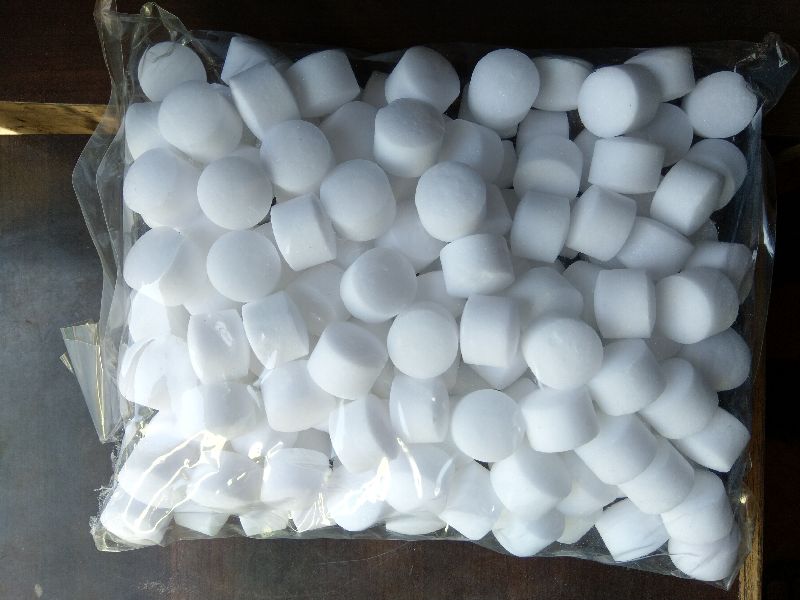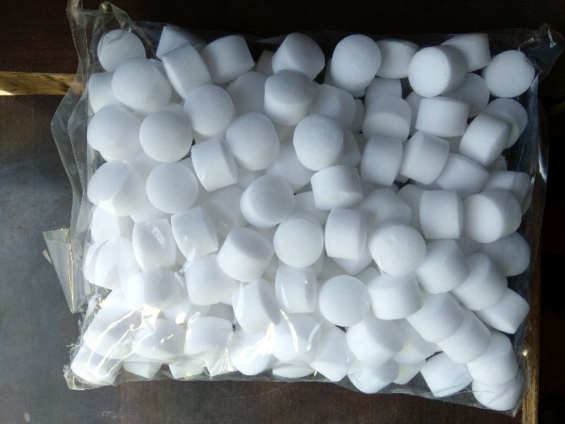
Audio By Carbonatix
Naphthalene balls, sometimes referred to as mothballs are white, volatile, small balls that are used either as pesticides or insecticides.
They may be used indoors or outdoors. Naphthalene balls mostly consist of the ingredients Naphthalene and Thionaphthalene and are obtained from either coal tar or petroleum distillation.
When naphthalene melts from solid into the gaseous state, it produces a strong pungent odour which is toxic to moths and other insects. Under the mandate of the Food and Drugs Authority (FDA), naphthalene balls are classified as household chemical substances for repelling insects.
It has come to the notice of the FDA that some sections of the public use naphthalene/mothballs to purify drinking water, and for the treatment of stomach aches, measles, and diarrhoea.
These forms of usage other than repelling insects may cause serious harm to the users and therefore the public is strongly advised to desist from that.

Indeed, research has shown that incorrect use of naphthalene balls can have severe health consequences on consumers and long-term exposure to them may result in severe anaemia, respiratory tumours, reproductive problems, headaches, nausea, sweating, jaundice, confusion, malaise, abdominal pains, eye, and nose irritations.
Additionally, the continuous release of these balls into water bodies and the environment can have dire consequences on aquatic life.
The FDA, therefore, urges the public to desist from the unapproved use of naphthalene balls and adhere to only the approved use as a household chemical substance solely approved for repelling insects and pests.
To this end, the FDA will continue to partner with relevant institutions in the sensitisation of the public on both the appropriate use and harm that may result from the abuse of naphthalene balls to safeguard the health and safety of the consuming public.
Other regulatory interventions such as the recent introduction of the Street Food Vending Permit initiative intended to closely monitor the preparation, packaging and storage of street foods are being enforced in a bid to ensure that no chemical contamination occurs and there is strict adherence to Good Hygienic Practices (GHP) at all times.
Latest Stories
-
Roads Minister rejects Minority’s claim of downgrading Suame Interchange Project
9 minutes -
Eco-Africa Network demands dismissal of culpable officials in explosive JoyNews exposé
17 minutes -
Ayawaso East vote-buying: Party will take decision after committee findings – NDC
18 minutes -
Ayawaso Zongo Chiefs warn of possible chaos if NDC annuls disputed primary
38 minutes -
I didn’t see failure as an option: Chicago Fire forward Shokalook
46 minutes -
TI-Ghana condemns alleged vote-buying in Ayawaso East NDC primary
53 minutes -
Karim Zito resigns as Asante Kotoko head coach following MTN FA Cup elimination
55 minutes -
“Is your cell phone bugged?” Why privacy may be an Illusion in the age of smart devices
1 hour -
Politicians will soon distribute Range Rovers – Dr Asah-Asante warns over vote-buying
2 hours -
MIIF’s Economic and Market Outlook for 2026 forecasts increased investment in AI
2 hours -
GIADEC CEO clarifies land dispute, outlines aluminium industrial park plans
2 hours -
Mahama amuses surgeons with humorous take on childbirth at regional conference
2 hours -
Ex-occultist Ama Born Again warns of bloody and dangerous rituals at marketplaces
2 hours -
Painful memories, hard lessons: Why Ghana’s backroom team matters more than ever
3 hours -
Vote-buying has become a ‘soft culture’ in Ghanaian politics – Political analyst
3 hours

